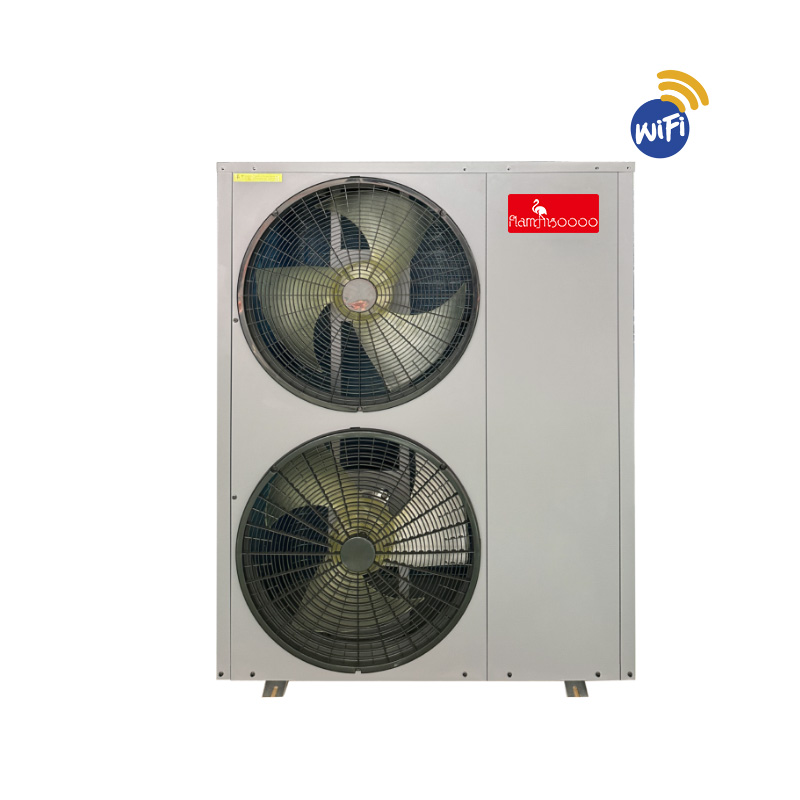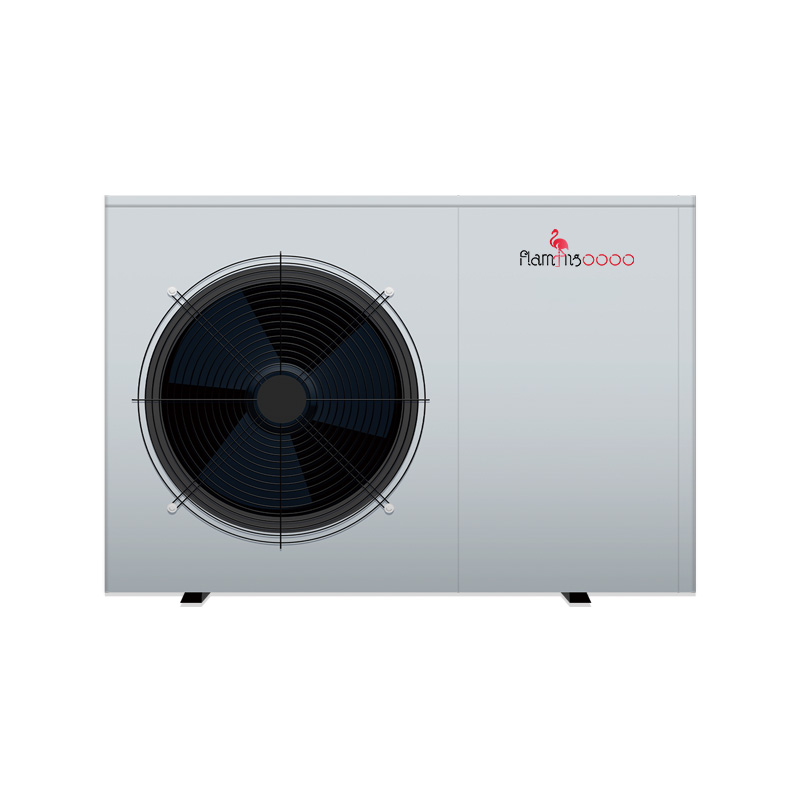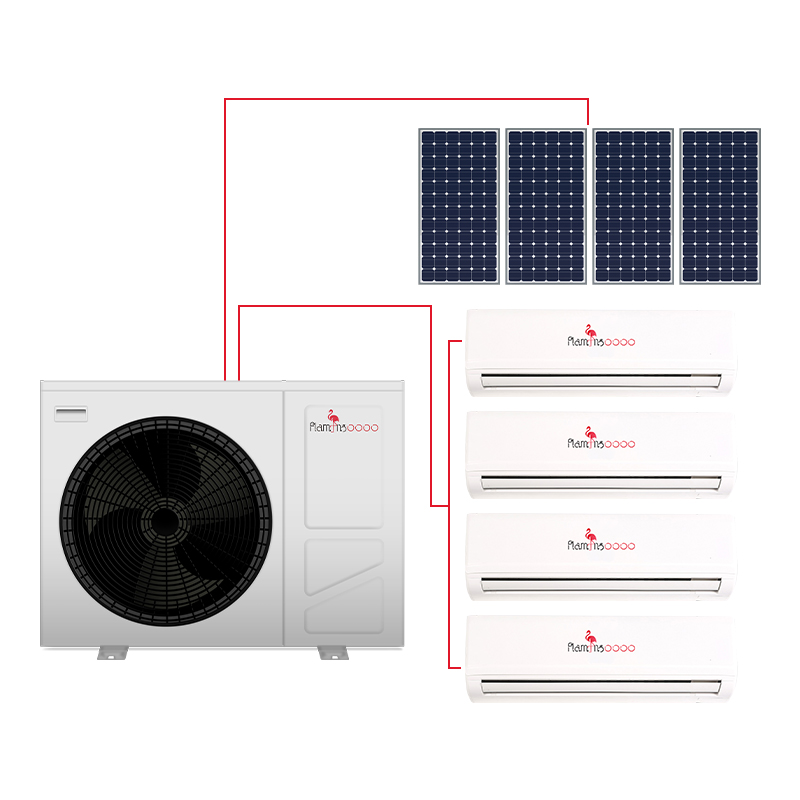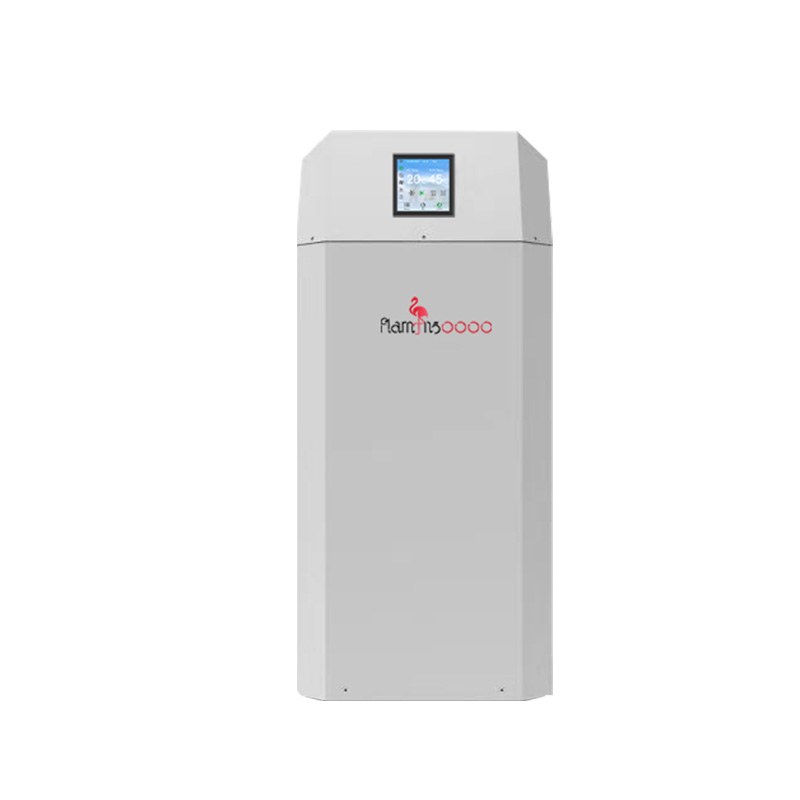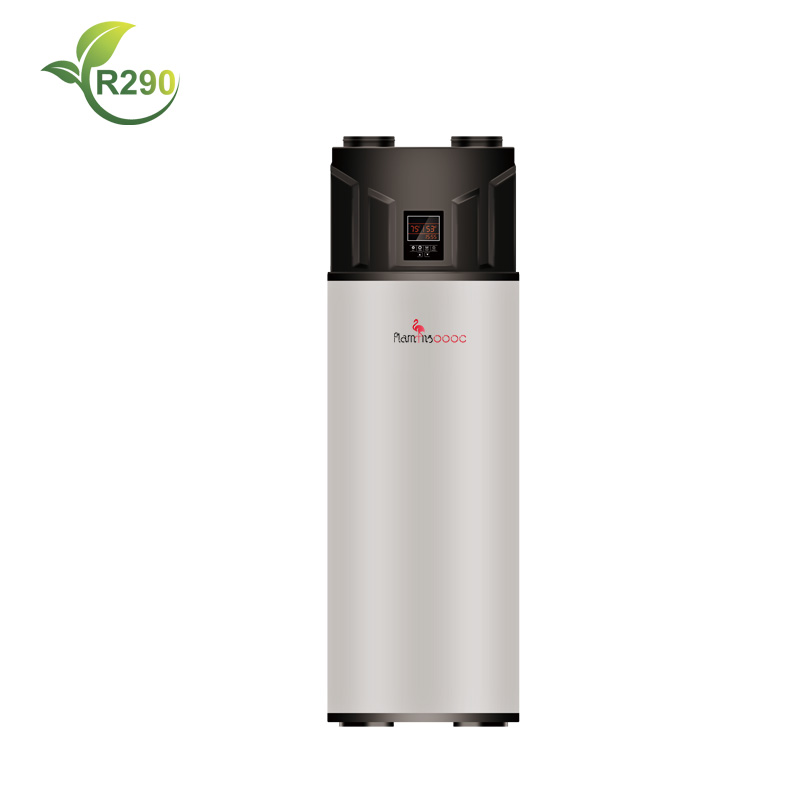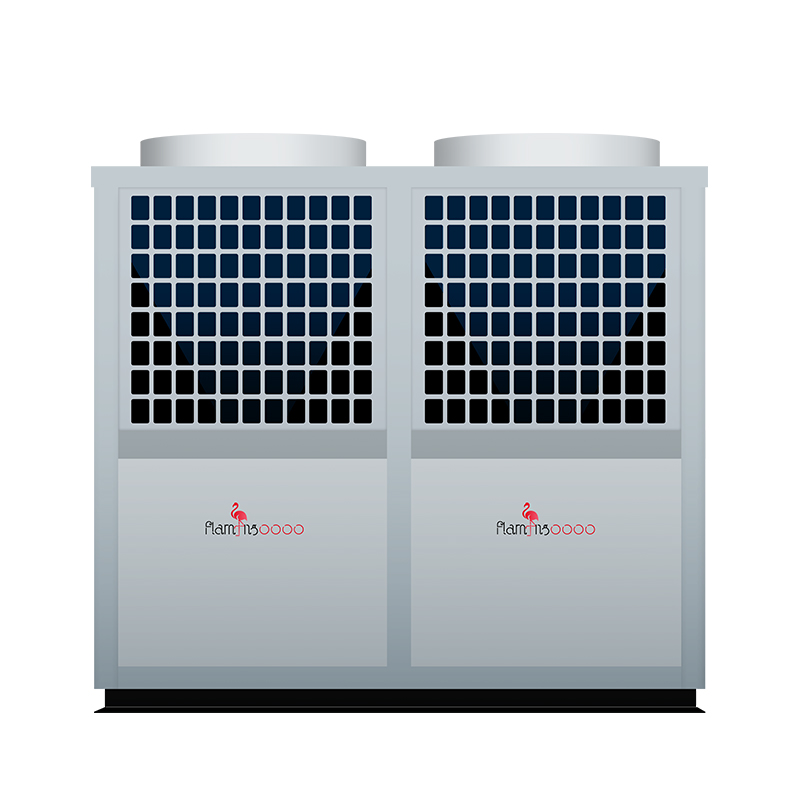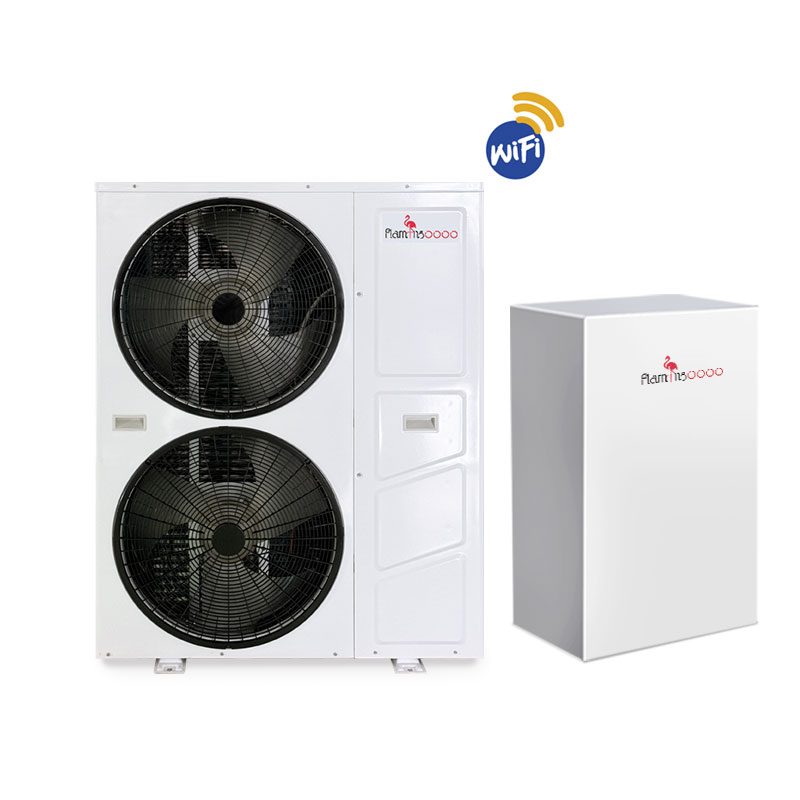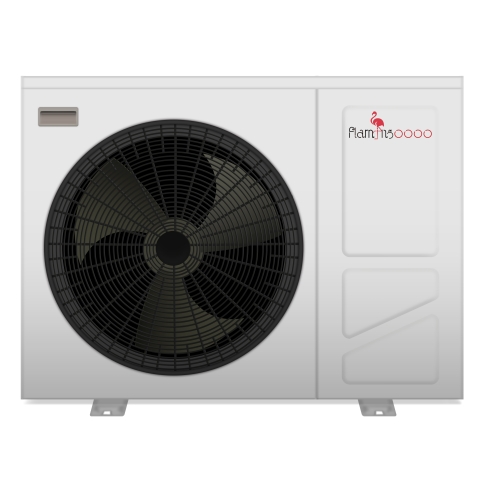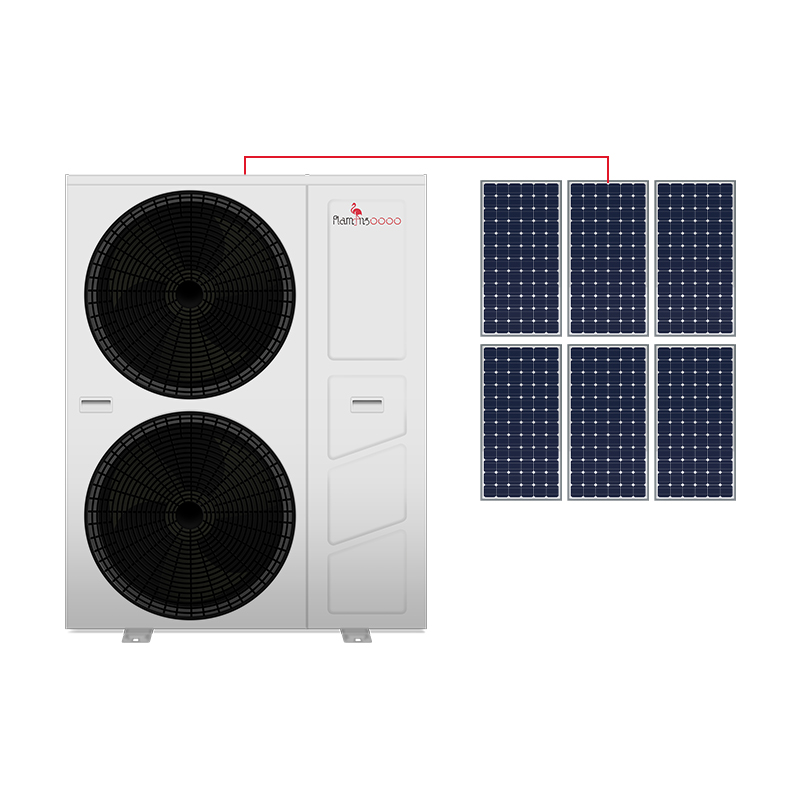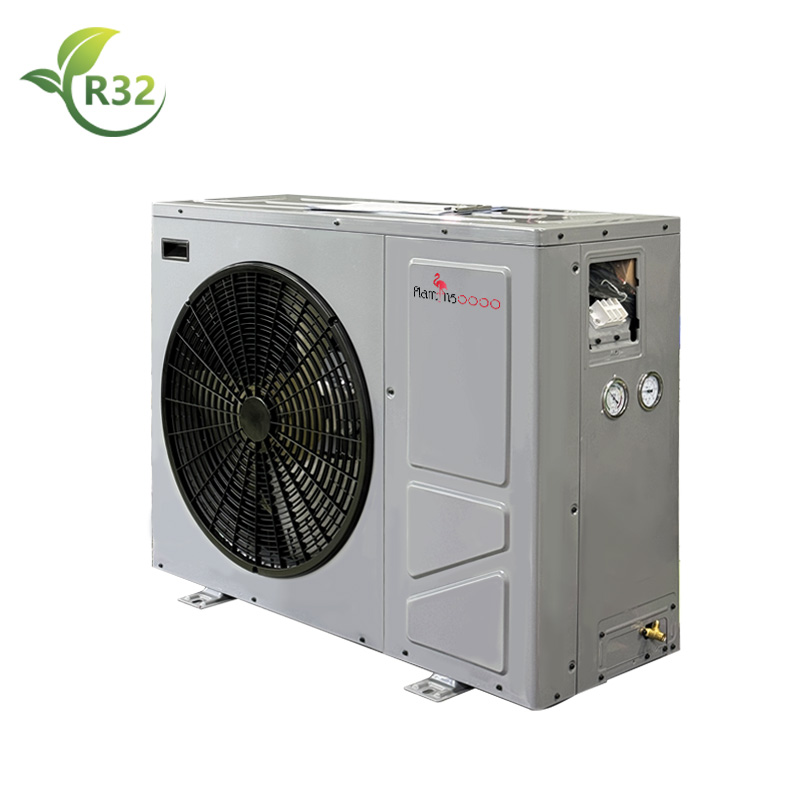Air Source Heat Pump VS Air Conditioner
Air Source Heat Pump VS Air Conditioner
Which one is more energy-saving, air source heat pump or air conditioner?

The energy efficiency of both air source heat pumps (ASHP) and air conditioners can vary based on several factors, including the specific models, their usage, and the climate in which they are operated. Before we compare these two equipment, it's essential to understand the primary differences between the two systems:
Air Source Heat Pump (ASHP):
ASHPs are designed to provide both heating and cooling. In heating mode, they extract heat from the outdoor air and transfer it indoors, and in cooling mode, they remove heat from indoor air and release it outside.
ASHPs are generally considered more energy-efficient for heating compared to traditional electric resistance heaters, as they move existing heat rather than generating it. However, their efficiency can decrease in very cold climates.
2. Air Conditioner:
Air conditioners, on the other hand, are specifically designed for cooling. They remove heat from indoor air and release it outside.
In terms of energy efficiency, modern air conditioners with high Seasonal Energy Efficiency Ratio (SEER) ratings can be quite efficient during the cooling season.
Factors to Consider:
1. Climate:
ASHPs are often more energy-efficient for heating in moderate climates. In extremely cold climates, their efficiency may decrease, and additional heating sources may be needed.
Air conditioners are generally designed to operate efficiently in warmer climates for cooling purposes.
2. Dual-Functionality:
ASHPs offer the advantage of providing both heating and cooling in a single system, which can be more convenient and potentially more energy-efficient than having separate heating and cooling systems.
3. System Efficiency Ratings:
The energy efficiency of both ASHPs and air conditioners can be assessed through system efficiency ratings such as the Seasonal Energy Efficiency Ratio (SEER) for cooling and the Heating Seasonal Performance Factor (HSPF) for heating. Higher SEER and HSPF ratings indicate greater efficiency.
4. Installation and Maintenance:
Proper installation and regular maintenance are crucial for the energy efficiency of both ASHPs and air conditioners. A well-maintained system is likely to operate more efficiently and have a longer lifespan.
5. Usage Patterns:
The energy efficiency of these systems also depends on how they are used. For example, setting appropriate temperature levels, using programmable thermostats, and ensuring proper insulation in the building can all impact overall efficiency.
Conclusion: In summary, the choice between an air source heat pump and an air conditioner depends on your specific needs, the climate of your location, and your preference for dual-functionality. Both systems have the potential to be energy-efficient when selected and operated appropriately. It's recommended to consult with HVAC professionals to assess your specific requirements and to choose a system that best suits your heating and cooling needs.

